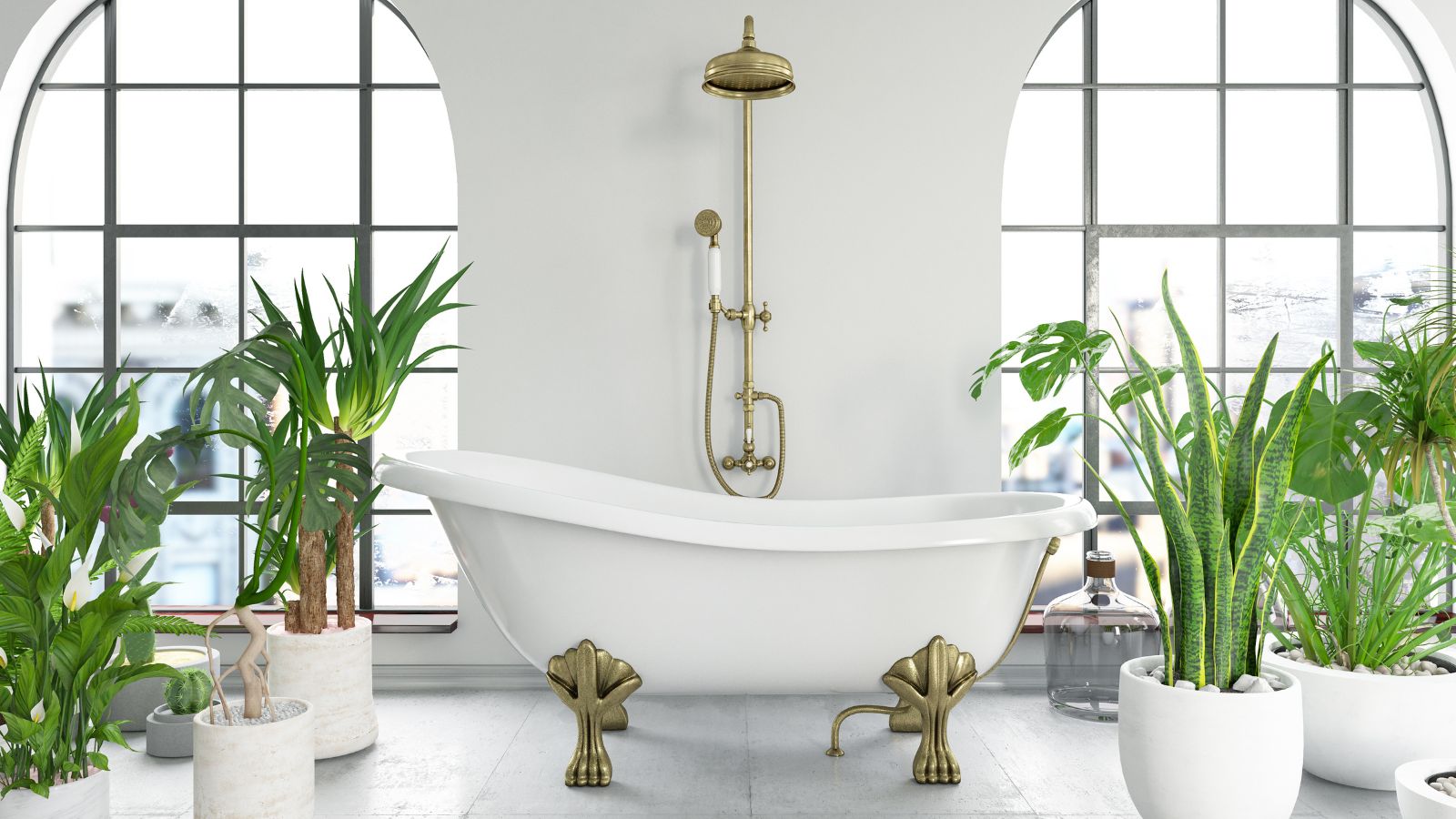
Cleaning is an essential part of upkeeping the appearance and hygiene of our homes. But since there are so many bacteria-banishing solutions available today, it can be hard to know which chemical is right for what cleaning job.
Bleach and hydrogen peroxide are two of the stronger contender, but both come with their own set of pros, cons, and differences that need to be considered before use. We talked to professional cleaners and chemical experts to delve deeper.
After reading what experts had to tell us you will know exactly what to never clean with bleach, and more.
Bleach vs hydrogen peroxide
What is the difference between bleach and hydrogen peroxide?
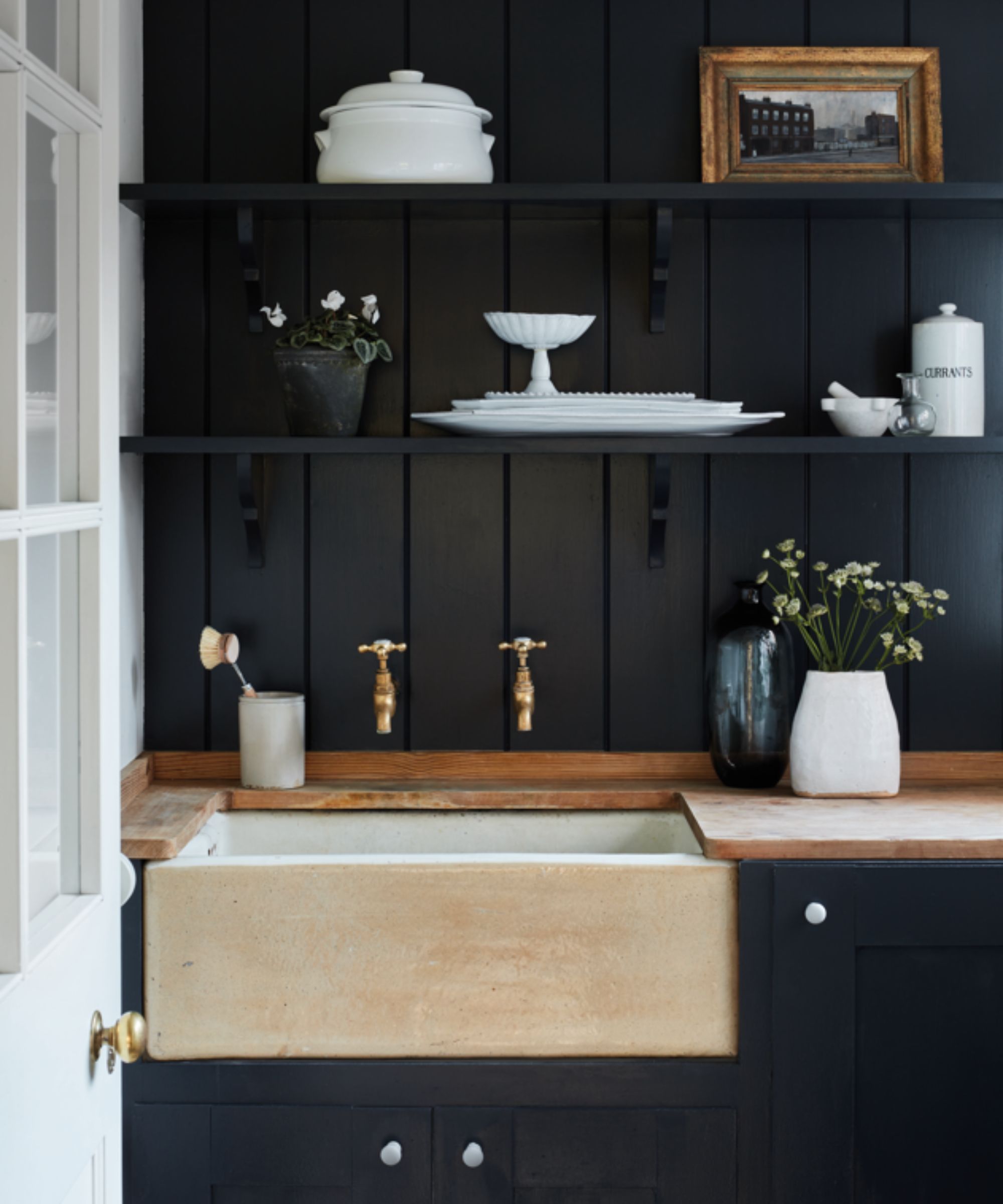
There are a number of discernible differences between bleach and hydrogen peroxide, despite both products being known as strong cleaning chemicals.
Karina Toner, operations manager at Spekless, breaks them down for us:
- Chemical composition: Bleach is a chlorine-based compound, while hydrogen peroxide is oxygen-based. These different compositions affect their cleaning capabilities and safety profiles.
- Fume production: Bleach produces strong fumes and requires good ventilation. Hydrogen peroxide does not produce strong odors, making it easier to use in confined or smaller spaces.
- Environmental Impact: Hydrogen peroxide is biodegradable and safer for the environment, breaking down into water and oxygen. Bleach, on the other hand, can produce harmful byproducts if not used properly.
- Material Safety: Hydrogen peroxide is safer for a wider range of materials, while bleach can cause discoloration or corrosion if used incorrectly.
The pros and cons of bleach
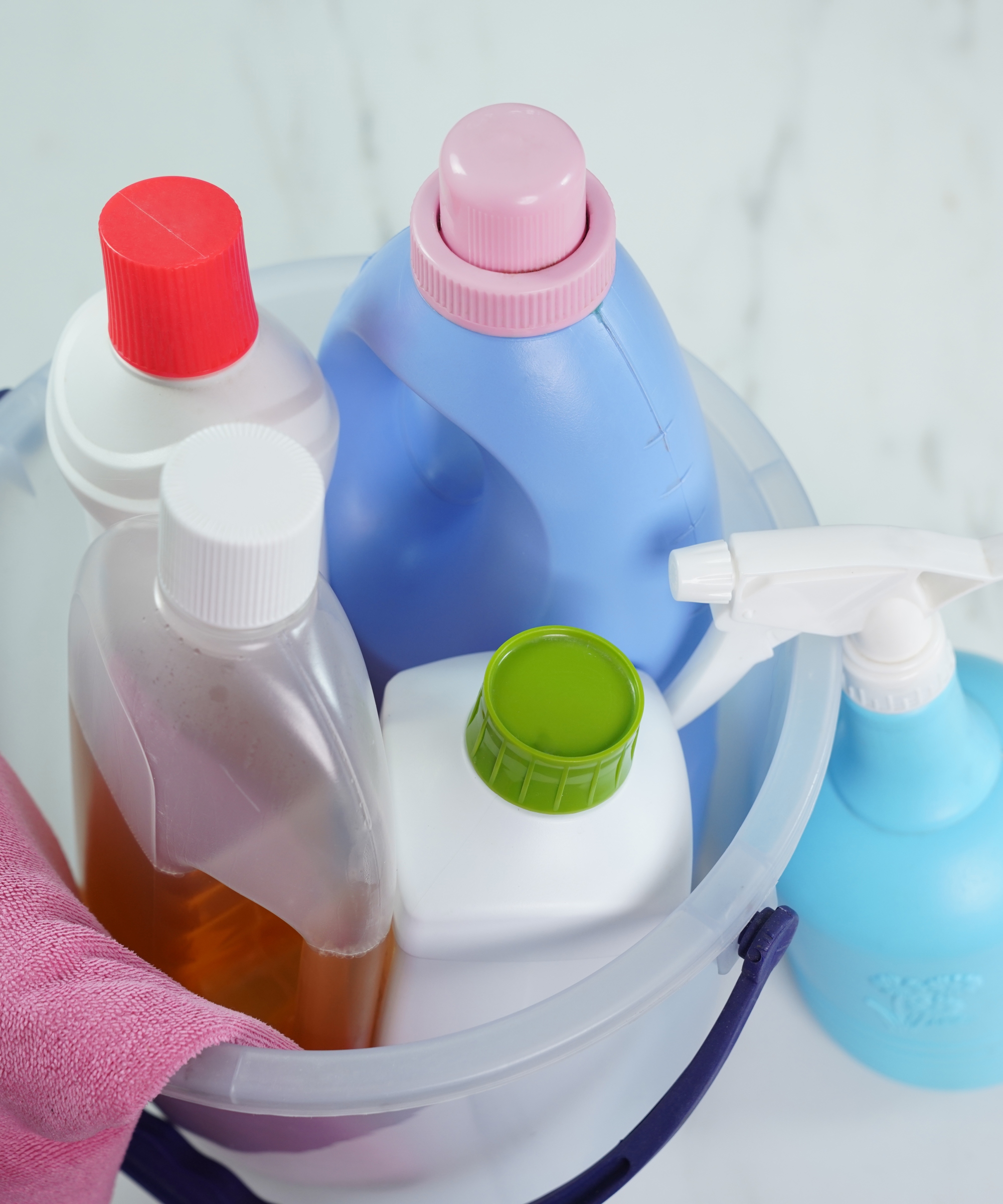
Of the pair, bleach is without a doubt the stronger chemical. However, just because a chemical is stronger doesn't necessarily mean it's better for ridding your the dirtiest places in your home of bacteria,
Tony Virgilio of VENT-US (a ventilation company), is knowledgeable about cleaning products as cleaning air vents is a vital part of keeping them working effectively.
Virgilio shares, 'This powerhouse cleaner is great for disinfecting surfaces, killing germs, and brightening laundry to achieve the whitest whites. But it comes with some downsides. Those strong fumes can irritate your lungs, can irritate your skin, and can damage colored fabrics or delicate surfaces. Plus, bleach isn’t the most eco-friendly option.'
The team at Clean Living, a company creating environmentally friendly cleaning solutions, highlights the potential downsides of bleach being so strong.
'Chlorine is the active ingredient in bleach,' the team say. 'It's a powerful oxidizer because pure chlorine is a toxic corrosive gas. When used as a cleaning product, it uses this toxicity to kill or harm what are often just referred to as germs, but what is in fact all of the microbial life in the area being treated.
'The populations of good, healthy bacteria that we live in complete harmony with (think of healthy home microbiomes) is devastated, opening the door for pathogens, which are harmful bacteria and viruses, to begin to populate our homes unopposed by the good bacteria, which are our defence mechanism.'
Bleach is a great disinfecting option in your home if you're confident using it, have non-porous surfaces that are safe to clean with bleach and adequate ventilation. So long as you aren't using too much, breathing in large quantities of the fumes, or tackling one of the things experts say never to clean with bleach, it's reasonably safe to use for major cleaning jobs.
Do make sure you wear gloves and a face covering if you have asthma or any other breathing difficulties.
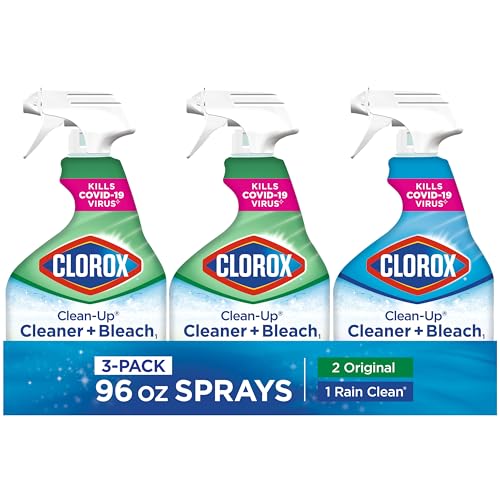
Spraying a bleach cleaning solution is easier than using a large bottle with a lid so you can keep better control how much of this strong cleaning agent you use in one go. This will help avoid accidents.
The pros and cons of hydrogen peroxide
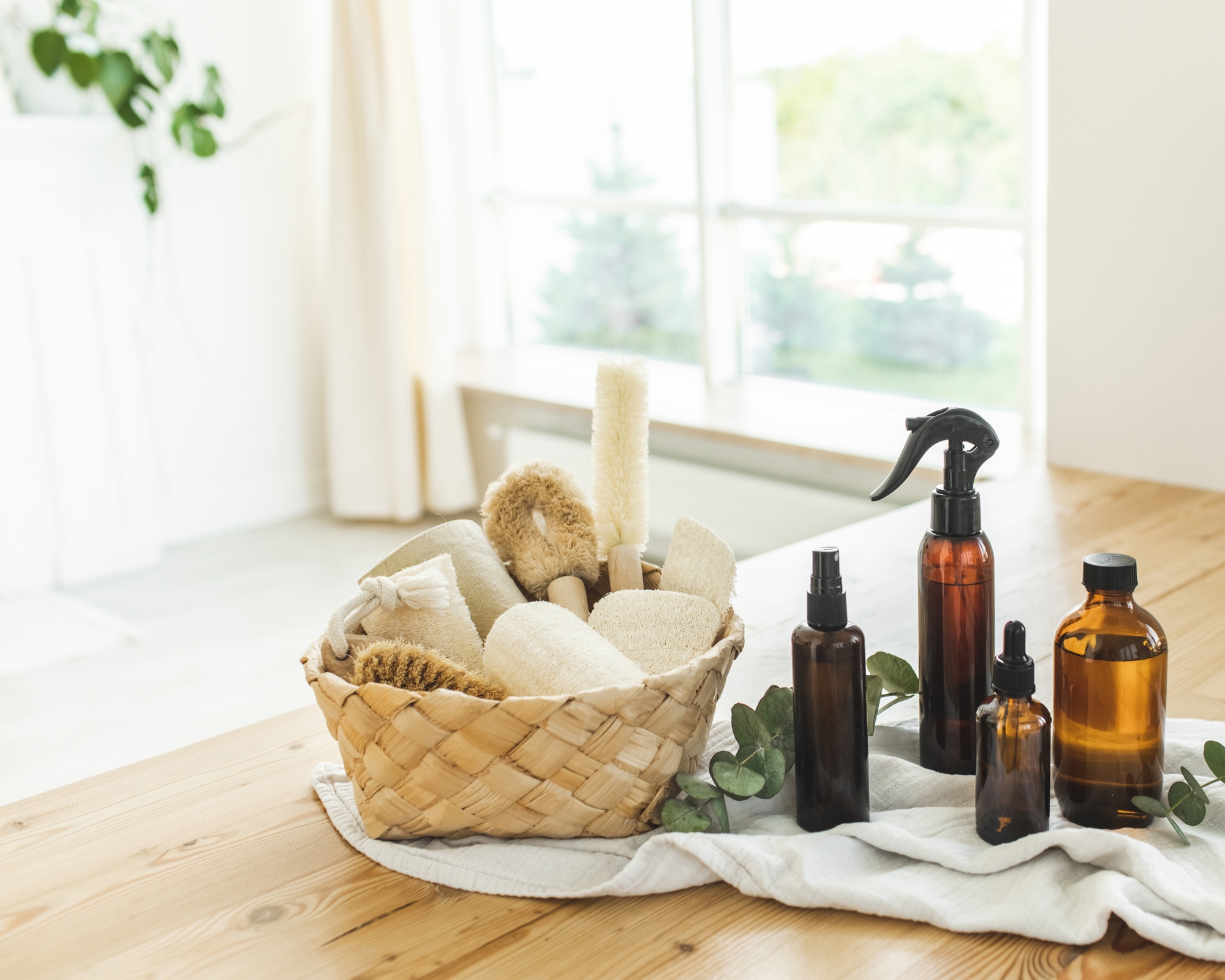
Hydrogen peroxide, as a less fragrant chemical, is the better choice to use on a frequent basis or in smaller spaces. However, it isn't as strong as bleach, so it won't clean areas quite as deeply or produce as stark visual results. For instance, if you're using the product for whitening purposes, your whites may not be quite as bright as they would be if you used one round of bleach.
Many people prefer cleaning with hydrogen peroxide because it is more versatile than bleach, easier for the average person to use safely and less likely to corrode delicate surfaces in the home. But it's all a matter of preference and the chemical needed to end with the best results will entirely depend on the cleaning job at hand.
'Hydrogen peroxide can be safely used on most surfaces, including natural stones, wood, and fabrics, without causing damage,' says Toner. 'However, when it comes to larger cleaning jobs or tougher ones such as tackling mold, the product may not penetrate porous surfaces as deeply as bleach. Using bleach to kill mold is a more suitable choice'
Toner continue to say, 'Hydrogen peroxide also has a shorter shelf life than bleach, as it breaks down when exposed to light and air. Therefore it must be stored in a dark, airtight container when a person goes to organize cleaning supplies to maintain its potency.'
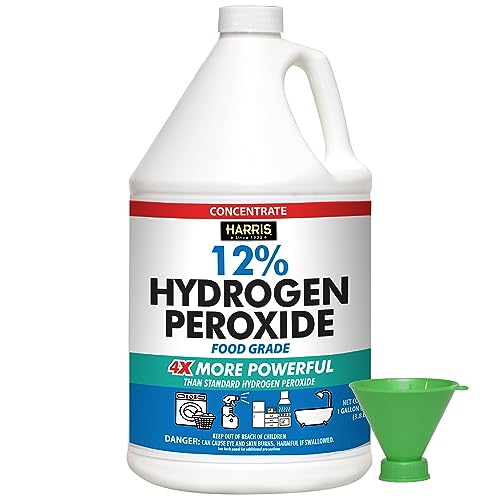
This 129 oz bottle will work wonders around the home when cleaning with hydrogen peroxide.
What should each chemical be used for in your home?

Home uses for bleach
Bleach and hydrogen peroxide can largely be used for the same sorts of jobs around the home. However, when you approach the job, different methods need to be applied to get the best results from each product.
Toner describes three ways that bleach can be used as a miracle cleaning solution around the home:
- Disinfecting surfaces: Dilute bleach with water (typically 1 cup of bleach per gallon of water) and apply to non-porous surfaces like countertops, sinks, and bathroom fixtures. Allow it to sit for 5-10 minutes before rinsing thoroughly. Just make sure you never mix bleach with vinegar.
- Whitening laundry: Add 1/2 cup of bleach to a load of white laundry to remove stains and brighten fabrics. Be sure to use cold water and avoid using bleach on colored fabrics unless they are labeled "bleach safe."
- Cleaning mold and mildew: Apply a diluted bleach solution to areas affected by mold or mildew, such as bathroom tiles or outdoor furniture. Let it sit for 10-15 minutes before scrubbing and rinsing. Do note, using bleach will only get rid of surface mold so be careful how you go about using bleach to get rid of mold to prevent a resurgence.
Home uses for hydrogen peroxide
Toner then describes how each of the three cleaning jobs can be approached if you wish to instead use hydrogen peroxide:
- Disinfecting surfaces: Apply 3% hydrogen peroxide solution, available at Amazon to kitchen counters, cutting boards, and bathroom fixtures. Let it sit for at least 10 minutes before wiping clean with a damp cloth. This strength can also be used as a first aid antiseptic but make sure to read the instructions before using on skin.
- Laundry whitening: Add one cup of hydrogen peroxide to a load of white or color-safe laundry to remove stains and brighten fabrics. It’s gentler than bleach, making it suitable for more delicate fabrics.
- Mold and mildew removal: Spray undiluted hydrogen peroxide onto moldy surfaces, particularly in the bathroom or on walls. Allow it to sit for at least 15 minutes before scrubbing and rinsing.
So there you have it: bleach is the more effective option for whiter laundry, tackling mold and hard kitchen countertops, or cleaning dirty bathrooms, whereas hydrogen peroxide is safer around common areas where children and pets might be, whitening delicate fabrics, and for frequent odd jobs around the home.
Both are a staple product to keep at hand in your cleaning arsenal, and now you know how to use them like a pro, your home will be nothing short of sparkling.
Shop cleaning supplies
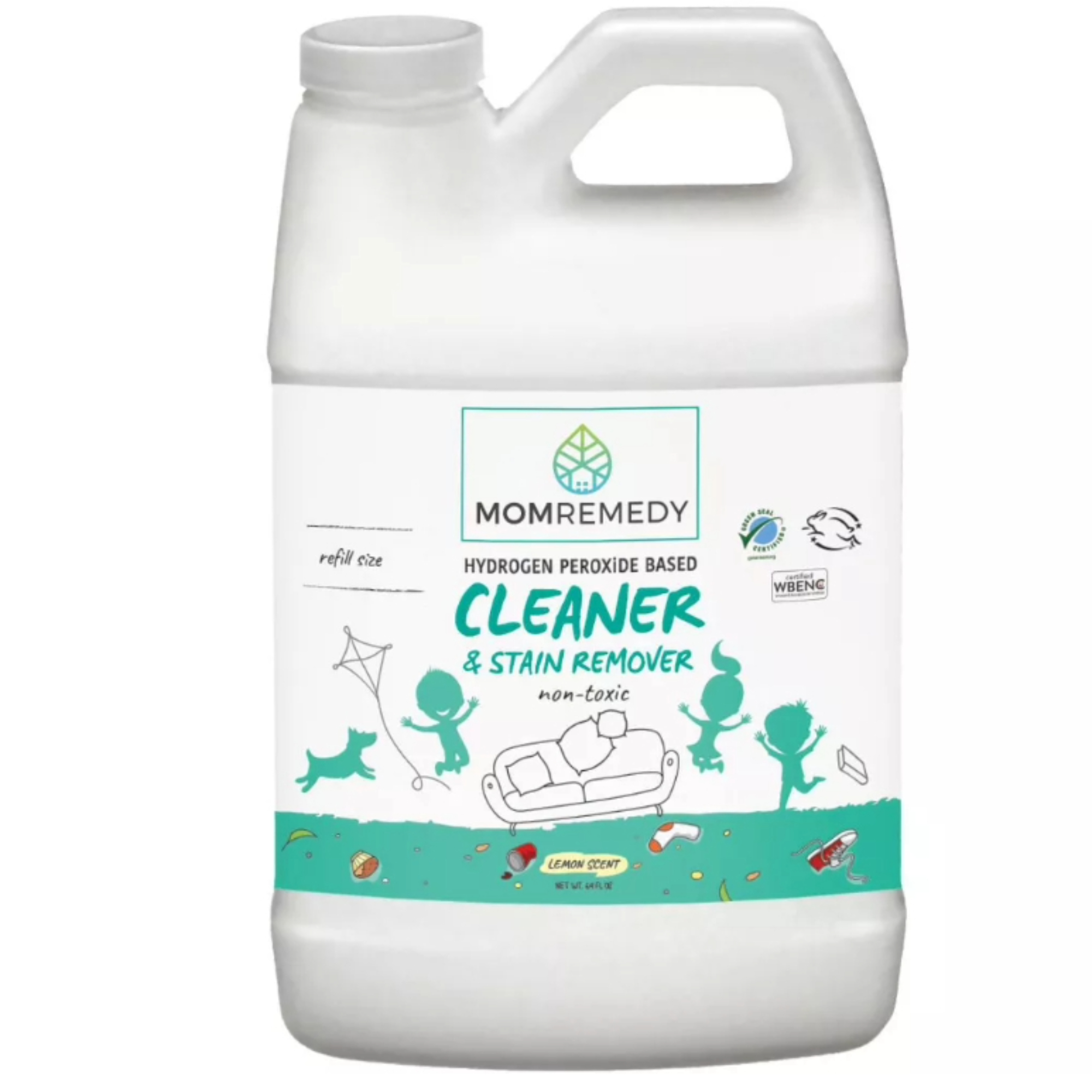
This 64oz bottle of hydrogen peroxide based cleaning solution is non-toxic and comes in a light lemon scent. Ideal for gently cleaning up household stains.
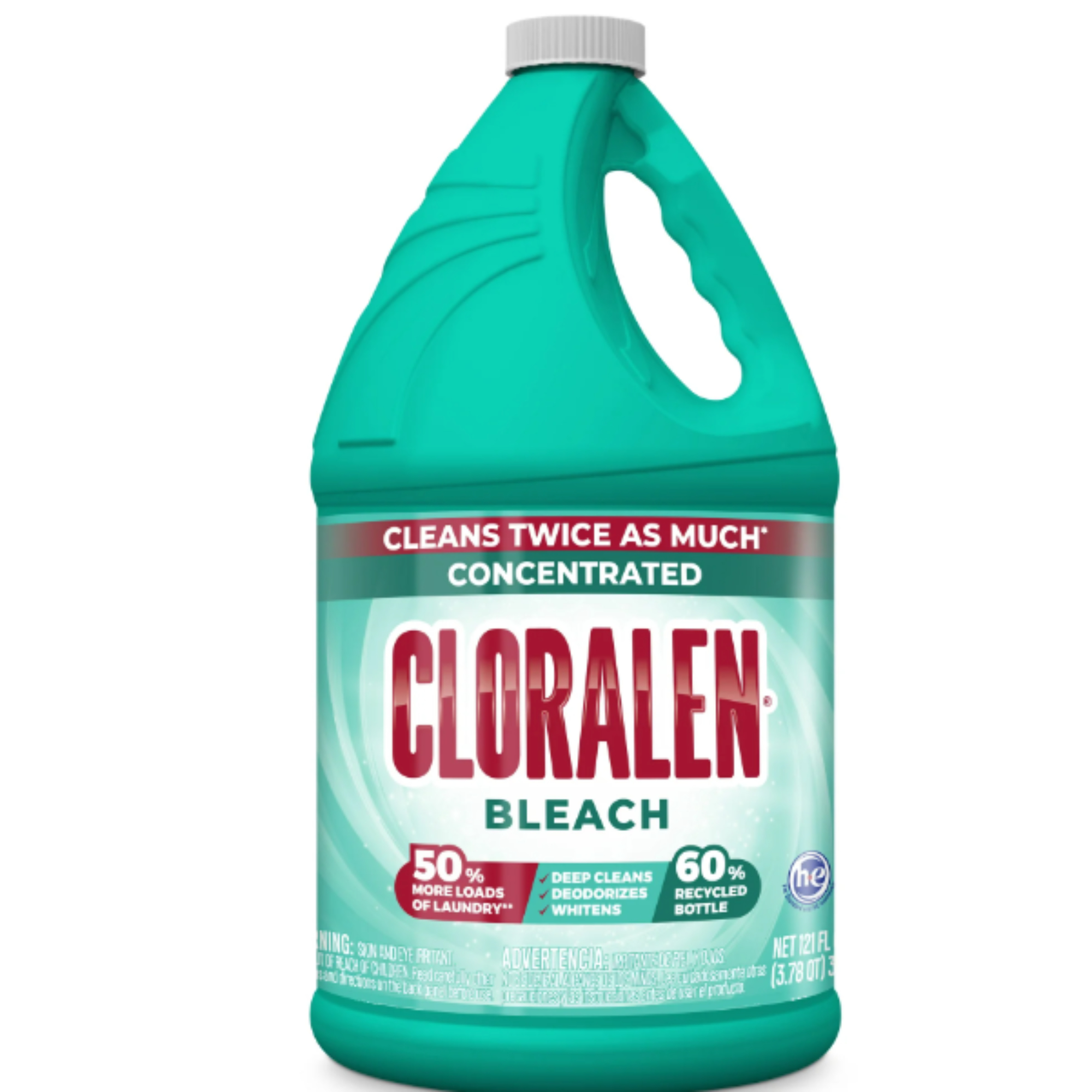
Cloralen's concentrated bleach last long and packs punch. Ideal for deep cleaning, whitening up your laundry or ridding your home of unpleasant odors, it's an all-in-one solution to your cleaning woes that is also extremely budget-friendly.
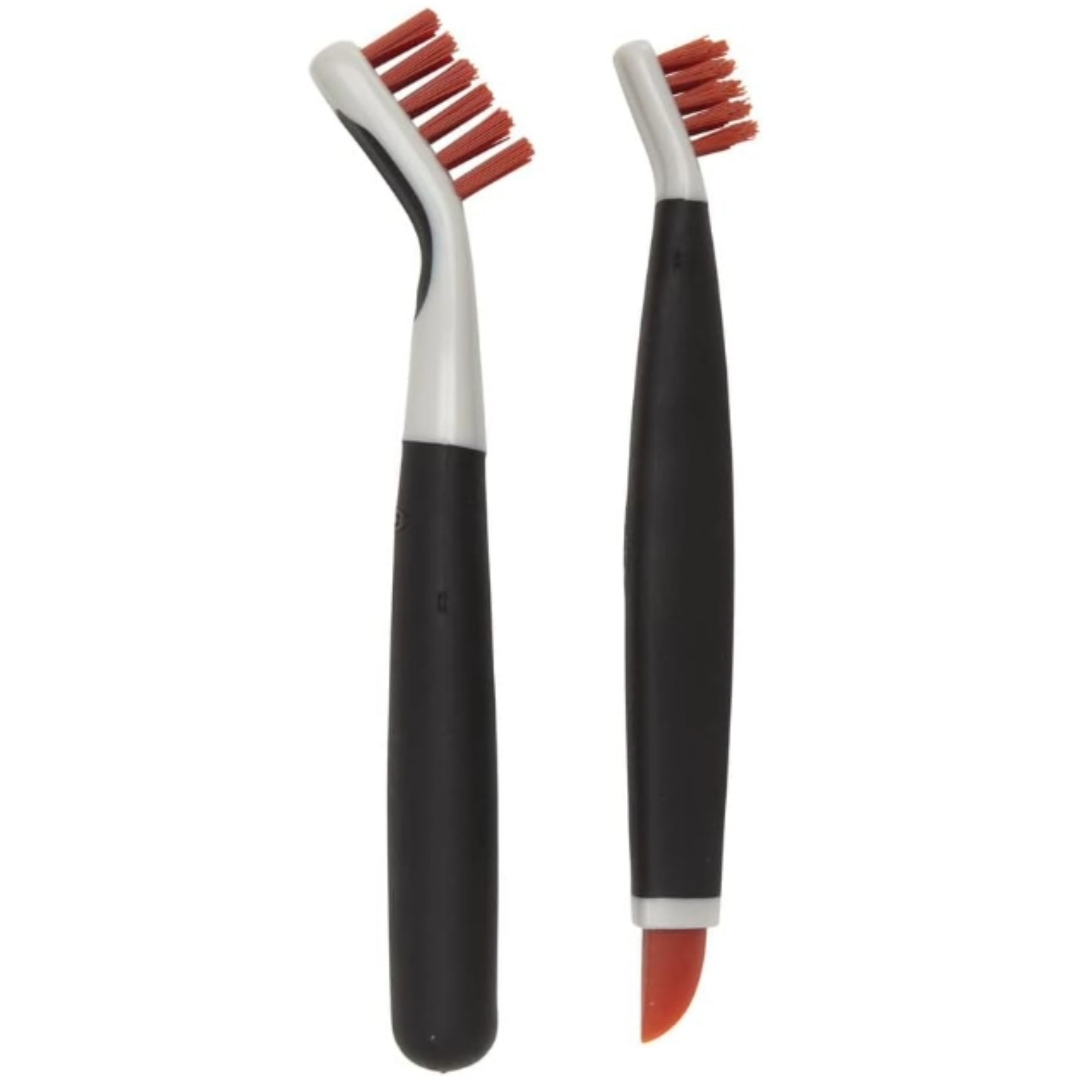
This set is ideal for any area in your home in need of a deep clean. You get a small and large brush, as well as a 'wiper brush' at the end of the smaller tool, designed to get into hard to reach areas.
You can continue to up your cleaning game even further by reading up on these six tips every cleaning fanatic swears by. By adding these common-place habits into your home cleanliness routine, you'll be way less likely to have to do large deep cleans on a regular basis.







